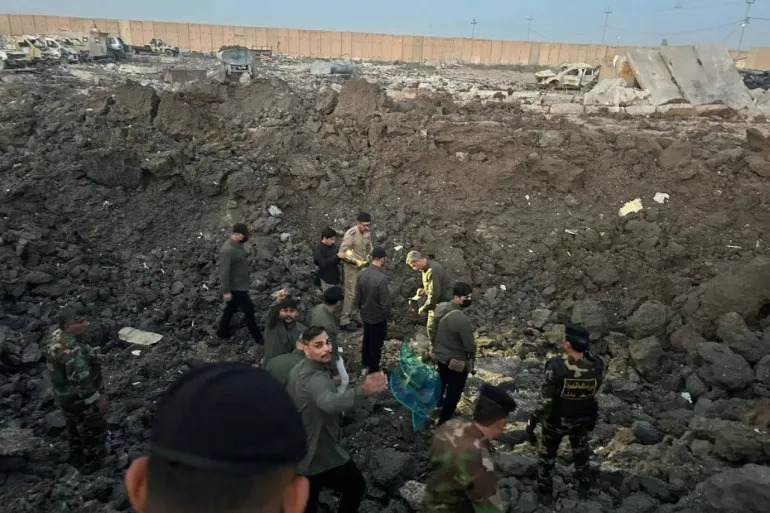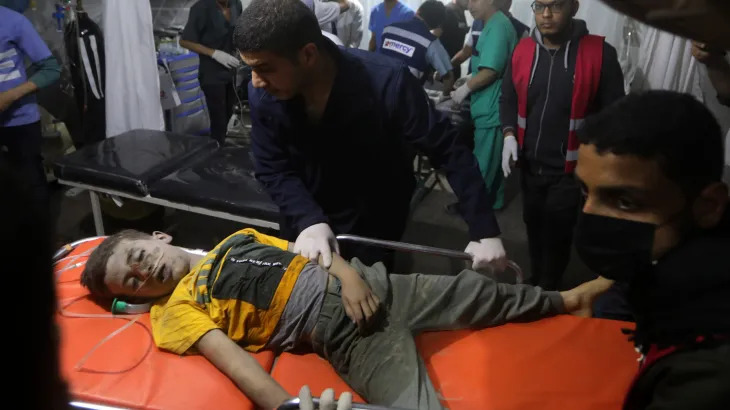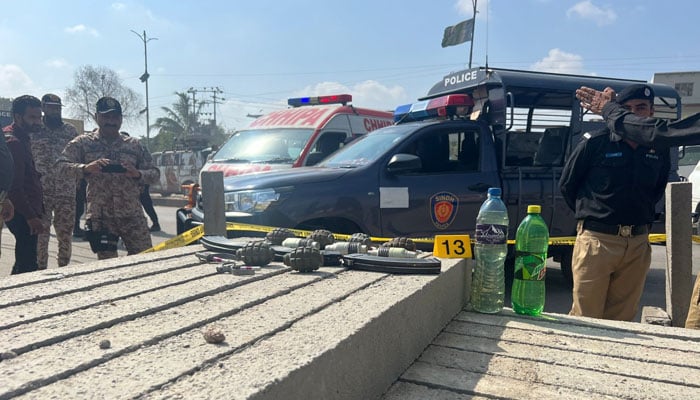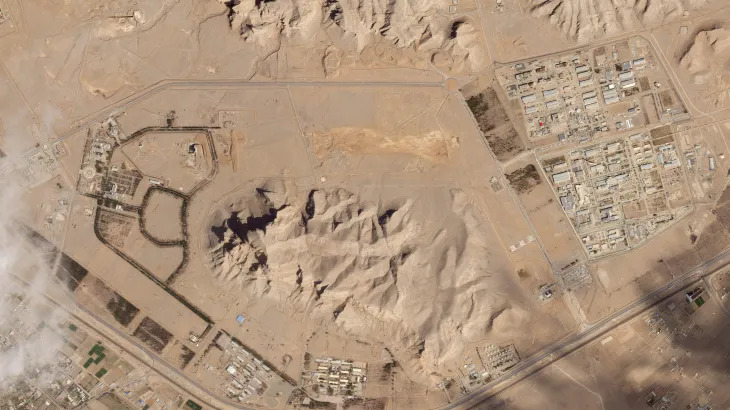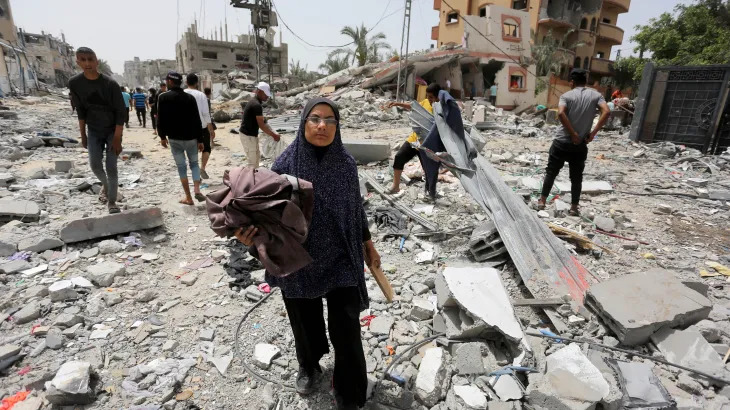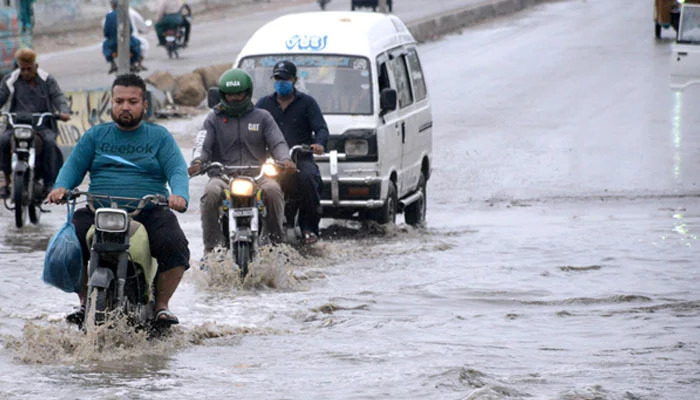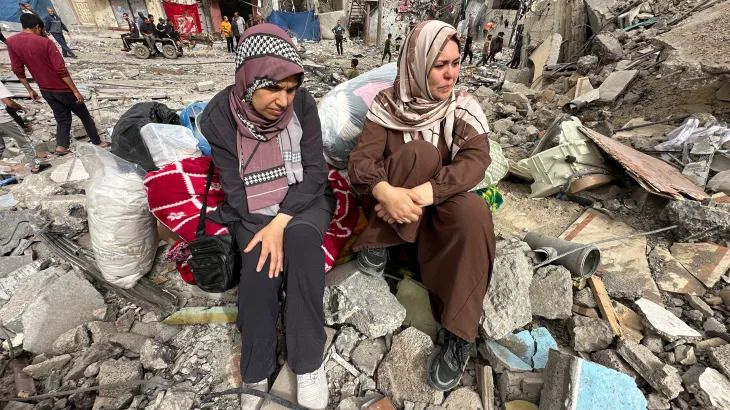All five foreign nationals, who were travelling in a vehicle attacked by terrorists in Landhi’s Mansehra Colony, were safe and shifted to an undisclosed location, police officials told Geo News on Friday. DIG East Azfar Mahesar said that the attackers were on foot, as per preliminary investigation. He added that police recovered six hand grenades, an SMG, and three magazines from militants. “The attackers also had two bottles of petrol. All the items were in a bag with the attackers,” said the police official. The DIG said that a vehicle and a motorcycle nearby were damaged in the blast after the terrorist blew himself up. A police mobile was parked at a nearby petrol pump which reached the spot after hearing the explosion, he said, adding that the personnel of the Sharafi Goth police station also confronted the terrorists. The DIG East revealed that the attack was carried out at 6:50 am this morning. The DIG further stated that there was a company vehicle with security guards as well behind the targeted one carrying the employees. He added that the terrorists opened fire on the van, while the security guards behind the van retaliated the attack, shooting dead one of them in the head. “One terrorist was killed in firing by security guards, while the other terrorist approached the van and blew himself up,” he said. The police official said efforts will be made to identify the slain terrorist using his fingerprints. He also revealed that the police were already on alert after having received security threats regarding foreigners in the city. He added that a security plan for China Pakistan Economic Corridor (CPEC) and non-CPEC projects was prepared. Earlier today after the attack, the police said that the vehicle was targeted in a suicide attack but it was thwarted as two terrorists were killed. They added that the terrorists were on a bike when they carried out the attack with the police also finding a bag filled with grenades and Kalashnikov from the crime scene. SSP Malir Tariq Mastoi confirmed that it was a suicide attack. The police official said that another vehicle was also damaged in the explosion. Gunfire sounds were also heard, said the police. As per initial reports shared by the police, the second terrorist killed in the encounter was also a suicide bomber. “A suicide jacket and a grenade are tied to the terrorist’s body,” they said, adding that a bomb disposal team is reaching the site of the attack. Following the attack, the injured were being shifted to a nearby hospital, they added. Meanwhile, the nationality of the victims has not been ascertained so far. The law enforcement agency also shared that the foreign nationals were working in the export processing zone. A security guard, who was with the nationals and witnessed the incident, told Geo News that they had left Zamzama in two vehicles. He added that a loud explosion was then heard near Mansehra Colony. “After the explosion, a terrorist was firing at the vehicle,” the security guard said. CM Murad seeks report Meanwhile, Sindh Chief Minister Murad Ali Shah has sought a report of the Mansehra Colony blast from Inspector General of Police Ghulam Nabi Memon. The chief minister directed the police to obtain all the information about who the terrorists were and where they came from as well as probe about their facilitators. He maintained that anti-national elements wanted to disrupt peace and order in the country and lauded the police’s timely action following the attack. ‘Suicide bombers were waiting for vehicle’ Later, speaking to the media at the crime scene, Counter Terrorism Department In-charge Raja Umar Khattab told journalists that the foreigners were travelling in three vehicles. He added that the suicide bombers were waiting nearby and attacked the vehicle when it slowed down due to a speed breaker. “The security guard fired at the attackers and thwarted the attack,” he said, adding that the terrorists arrived on a motorcycle and were chasing the car. They, he added, stepped down from their motorbikes near the scene and approached the vehicle on foot before opening fire at the van. ‘No foreign national injured in attack’ One of the injured in the attack, a 45-year-old security guard Noor Muhammad, succumbed to his injuries during treatment, Jinnah Postgraduate Medical Centre’s administration told Geo News. The security guard, who was deployed for security of the foreigners in the vehicles, was placed on a ventilator after his condition continued to be critical. Meanwhile, another injured Salman was also shifted to the ventilator. One more injured is also receiving treatment at the hospital, the administration added. The bodies of the suicide bombers have also been shifted to the hospital. Earlier, Jinnah hospital officials told Geo News that three injured were brought to the medical facility out of which two were critically injured. The injured, which included two security guards and a passerby, were identified as Noor Muhammad, Langar Khan and Salman Rafiq. They also confirmed that no foreign national was injured in the accident. Dr Nosheen, Jinnah Hospital’s emergency in-charge, said that at least three injured in the explosion were brought to the emergency room. Speaking with journalists at the hospital, she added that the condition of one injured, 43-year-old named Noor Muhammad, is critical. Dr Nosheen said that the injured person will be transferred to the neurosurgery ward after first aid. “No foreigners are among the injured,” she added. Shahzad Sadiq, the brother of one of the injured people Salman, confirmed his brother’s injury in the blast and the subsequent firing. Speaking with journalists at the Jinnah Hospital, he said that Salman was a firefighter and was going to Port Qasim for his duty. “Salman has been hit by bullets in different parts of the body,” Shahzad said, adding that his brother informed his wife about his injury. Governor Tessori condemns attack Sindh Governor Kamran Tessori condemned the suicide attack in Landhi, directing the CCPO and IG to present a report on the attack. “Terrorism will not be tolerated










